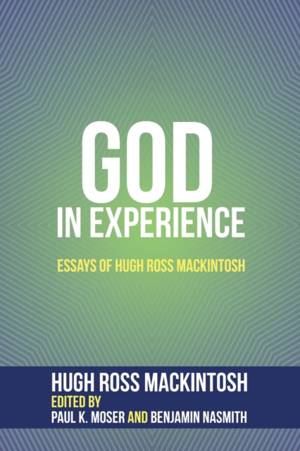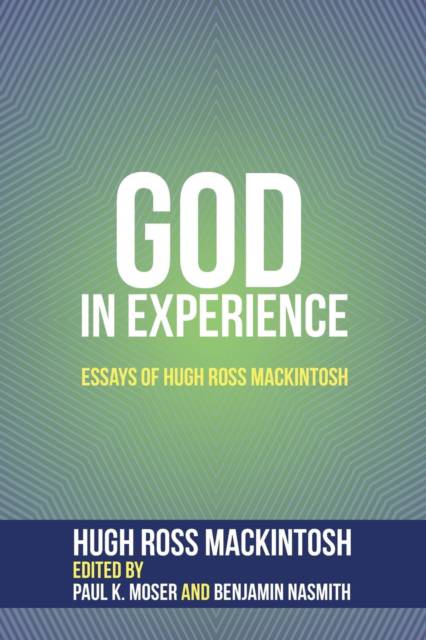
- Retrait gratuit dans votre magasin Club
- 7.000.000 titres dans notre catalogue
- Payer en toute sécurité
- Toujours un magasin près de chez vous
- Retrait gratuit dans votre magasin Club
- 7.000.0000 titres dans notre catalogue
- Payer en toute sécurité
- Toujours un magasin près de chez vous
Description
The question of God in experience is, according to Hugh Ross Mackintosh, a question of whether and how God self-manifests to some humans in their experience, perhaps in conscience. Does God self-authenticate or self-evidence God's reality to some humans, in their experience? This book contains sixteen of Mackintosh's essays and two of his sermons that address this question. Mackintosh describes God as an intentional agent with goal-directed causal powers--not just an idea, a principle, or a law. He thus holds that God is an active personal agent capable of interpersonal communion with humans. Mackintosh pays careful attention to the experience of being forgiven and redeemed by God. God in experience, then, is God in moral experience. Mackintosh invites his readers to consider whether their experience includes an experienced moral challenge, an encounter with a God who seeks our redemption. ""The theological vision of Hugh Ross Mackintosh, one of the foremost theologians of the early twentieth century but often overlooked today, warrants fresh consideration. God in Experience offers an excellent (re)introduction to his thought. This valuable and needed collection of essays and sermons centers around and explores the far-reaching implications of one provocative premise: the starting point for theology is divine self-revelation in personal experience."" --Kenneth E. Kovacs, author of The Relational Theology of James E. Loder: Encounter and Conviction ""H. R. Mackintosh was one of the most influential theologians of his generation. Now, this carefully chosen collection introduces his thought to a new generation of readers, beckoning us to hear again the Christian community's claim that in Jesus we experience 'the supreme moral reality' for whom the contingencies and experiences of history, and of our lives, are neither an embarrassment nor foreign territory. While few will follow Mackintosh at every point, his attention to the character of life and faith as experienced communion invites our consideration still."" --Jason Goroncy, Whitley College, University of Divinity, Australia Hugh Ross Mackintosh (1870-1936) was a notable Scottish minister and theologian who studied under Martin Kahler and Wilhelm Herrmann. Mackintosh had John Baillie and Thomas F. Torrance among his own students. He authored several important books, including The Doctrine of the Person of Jesus Christ and Types of Modern Theology: Schleiermacher to Barth. Paul K. Moser is Professor of Philosophy at Loyola University Chicago. He is the author of The God Relationship (2017), The Severity of God (2013), The Evidence for God (2010), and The Elusive God (2008). He is editor of Jesus and Philosophy (2009), among other collections. He has published a number of articles and chapters on religious epistemology, in such journals as Religious Studies and The Expository Times. Benjamin Nasmith is a recent graduate of Briercrest Seminary.
Spécifications
Parties prenantes
- Auteur(s) :
- Editeur:
Contenu
- Nombre de pages :
- 240
- Langue:
- Anglais
Caractéristiques
- EAN:
- 9781532641466
- Date de parution :
- 27-03-18
- Format:
- Livre broché
- Format numérique:
- Trade paperback (VS)
- Dimensions :
- 152 mm x 226 mm
- Poids :
- 299 g

Les avis
Nous publions uniquement les avis qui respectent les conditions requises. Consultez nos conditions pour les avis.






